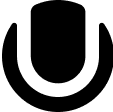The USC Freshmen on staying motivated, perspective, and getting it done on and off the court
Daniel Cukierman isn’t your average freshman varsity athlete. Before arriving at the
University of Southern California, Daniel served for three years in the Israeli Army, a requirement of his home country. He also was able to represent Israel in the Davis Cup and reached a career-high ATP ranking of 525. After he was released from his military duties, Cukierman had a mandatory eight-month break from competition during which he made the decision to head to college to focus on his education and further improve his game.
Universal Tennis had the chance to speak with Daniel on his college career and why he selected USC.
Universal Tennis: How did you start playing tennis?
Daniel Cukierman: I was six years old and my father took me to the courts and I had the same coach from when I was 6 to 18, so they both got me into tennis.
UT: Why did you choose USC?
DC: I visited five really good schools and was really impressed by all of them, but I had the greatest connection to the team, the coach and my teammates at USC. And the campus is unbelievable, it’s in LA, and it’s a great academic school so all together it was the right place for me.
UT: What has been your career highlight so far? College highlight?
DC: In 2016, I beat Amir Weintraub, who is 160 in the world, at the Israel Championship. I lost in the finals to the #17 in the world, but it was an unbelievable atmosphere and was broadcast on TV in Israel. I also won doubles in that tournament, which was awesome. In college, my highlight so far was the game against Georgia. It was my fourth game of the year against a really good team. It was me and another guy and we were both 4-5 points in the first set. It was the last match indoors, and when I won, my teammates jumped on me- it was really fun and a great experience.
UT: What type of adjustment has it been for you to play on the college level?
DC: Basically, I think all the rules - the nets on the serve and the subbing point are pretty rough the first couple of games, but you get used to it quickly and I feel confident now. It’s the same tennis but it’s a different kind of pressure, sometimes I’m more nervous here, but at the end of the day, Coach says “it’s all tennis”.
"Here you play tennis, and in the pros you play tennis, so you just need to do your thing."
Here you play tennis, and in the pros you play tennis, so you just need to do your thing.
UT: What tournaments are you most looking forward to playing this year?
DC: Definitely the NCAAs at the end of the year, but it’s a bit too far right now, so I’m looking forward to playing
Stanford and
UCLA to get our revenge!
UT: Who is your biggest school rival?
DC: Definitely UCLA. We played there a week ago, and I played pretty well but we lost as a team. It was a tough day for us but we are ready for them next time.
UT: You’ve have had a lot of success playing in juniors and futures. Why did you decide to compete at the college level?
DC: It was a tough decision, it took me almost six months to decide. At the end of the day, it’s risky to go pro because if you’re not consistently in the top-100, you’re not going to make money. My feeling is to go to college, and after college, I can go pro and try my chances. And if it doesn’t work, I have my degree, so I’ll have other options. I feel like it’s better to start studying when you’re 22 (because I was in the Army) than when you’re 32. It was a really tough decision though, I was at my peak 500 in the world and then I had six months of injury so I missed six months of getting more points which could make me higher, but that’s life and I feel like I made the right decision.
UT: How are you balancing playing college and futures?
DC: I played some in the fall and if I can get some points this summer and in the fall that’s great. But right now I’m playing to do the ranking after college.
UT: What tips would you give to a player going out for college tennis? Or deciding between college and futures?
DC:
"Some people think that it’s less professional - more about the parties and less about practice. But when I came here, it’s better practices and competition than the Futures, and I feel like I have a great group here."
I feel like the biggest decision is to think through is if you’re good enough to be in the top 100 over the next few years, and you have the money, and of course, if that’s your dream. If you don’t see that happening in the next three to four years, then you should go to college and try to advance there.Competing in college is a great atmosphere and the practice is great. Some people think that it’s less professional - more about the parties and less about practice. But when I came here, it’s better practices and competition than the Futures, and I feel like I have a great group here. If someone is considering all of that, I’d say look at what you’ll do in the next ten years.
UT: What’s a day in the life of a USC tennis player like?
DC: On a regular day, I wake up at 6:30 or 7. We have morning practice or fitness every day, and then I have classes after that usually until noon or two. Then we have two and a half hours of practice, then more classes, so I finish at 7 PM or 9. It’s really packed - I didn’t expect that much occupation from school and tennis. In the beginning, it was tough but now I’ve adjusted to it a lot better.
Lightning Round
What’s your killer shot: Forehand or kick serve
Singles or doubles: Singles
Forehand or backhand: Forehand
Favorite tennis player: Roger Federer
Favorite tournament: Wimbledon
Clay or hard: Hard
Favorite school swag: We have a rad shirt this year! It’s an unreal Nike one that we’ve worn a couple of times.
Best nutrition advice: No Coca-Cola! (But I still drink it!)
Best training advice: Off my coach - baskets of serves
Favorite Class: Econ 205
Tennis Mantra: Hustle. And when I’m in a match, I’m thinking about fighting to win.
We love to see how you play! Share your photos to
#GetRated and you might be featured on our website. Stay updated on all things UTR by following us on Twitter and Instagram @MyUTR.
 Daniel Cukierman (Photo courtesy of Hali Helfgott & USC Athletics)
Daniel Cukierman (Photo courtesy of Hali Helfgott & USC Athletics)




